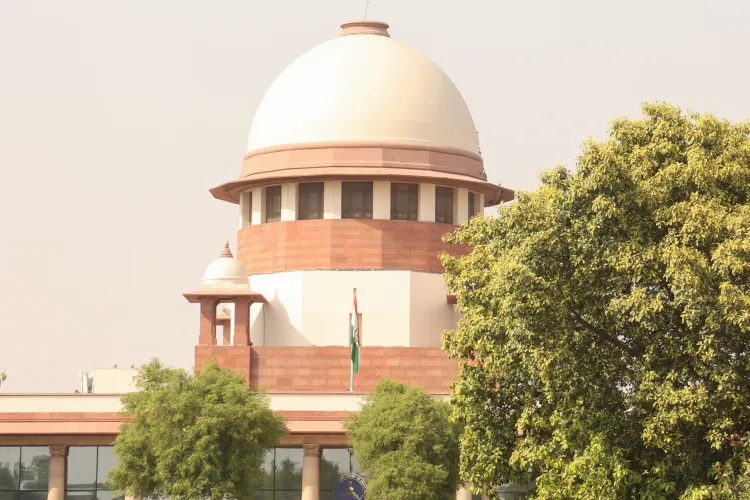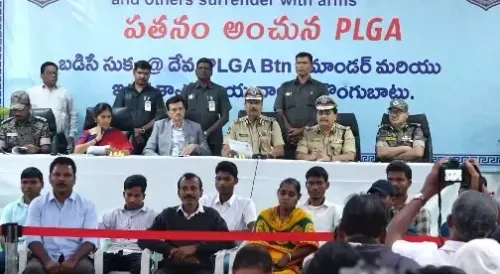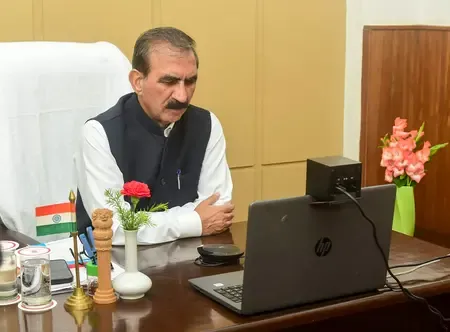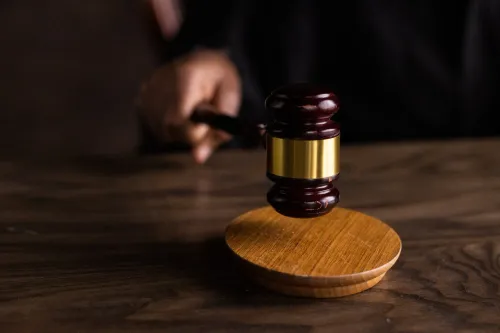What is the Supreme Court's Notice in the Jaipur Town Hall Dispute?

Synopsis
Key Takeaways
- The Supreme Court issued a notice but did not grant a stay on the Rajasthan High Court's ruling.
- The case involves a dispute over the Town Hall's intended use following a 1949 agreement.
- The royal family's objections center around the violation of historical agreements.
- The Supreme Court will conduct a thorough constitutional review of the case.
- This case could have significant implications for property rights related to historical agreements.
Jaipur, June 2 (NationPress) The Supreme Court has issued a notice regarding the ongoing dispute between the Rajasthan government and the former royal family of Jaipur concerning the historic Town Hall, also referred to as Purani Vidhan Sabha.
While addressing the case, the apex court declined to impose a stay on the Rajasthan High Court ruling from 2025. This legal matter stems from the previous Gehlot government's decision in 2022 to transform the iconic Town Hall into a “World-Class Rajasthan Heritage Museum.”
The royal family, headed by Rajmata Padmini Devi, has raised objections, arguing that this action breaches a 1949 agreement established between the Government of India and Maharaja Sawai Man Singh II.
A bench consisting of Justice Prashant Kumar Mishra and Justice Augustine George Masih noted that this case poses “significant legal questions” that necessitate a thorough hearing.
Notices have been sent to all involved parties, but the court did not grant any interim relief, such as a stay or injunction. Additional Advocate General Shiv Mangal Sharma, representing the Rajasthan government, requested that a formal reply from the state be submitted before proceeding. He assured the court that no further actions regarding the Town Hall would take place while the case is ongoing.
In light of this assurance, the court opted not to impose any restraining order at this time. The government further argued that the dispute pertains to a pre-Constitutional agreement formed in 1949, which falls under Article 363 of the Constitution, preventing courts from resolving disputes linked to treaties or agreements with princely rulers.
Senior advocate Harish Salve, representing the petitioners, asserted that the 1949 agreement clearly stipulated that properties like the Town Hall were allocated solely for official governmental functions. With the legislative assembly relocated, any attempt to repurpose the building for a museum or commercial use violates that agreement.
Salve also stressed that Article 363 should not be interpreted in a manner that undermines fundamental or constitutional rights, particularly following the 26th Constitutional Amendment of 1971, which eliminated the privileges and recognition of former rulers and regarded them as ordinary citizens.
In 1949, as part of the merger agreement with the Indian Union, several properties, including Jaipur’s Town Hall, were ceded by the Jaipur royal family to the state for governmental purposes.
The erstwhile royal family objected in 2022 to the Gehlot government’s decision to convert the Town Hall into a heritage museum, citing a breach of the original agreement. Despite raising objections from 2014 to 2022, no resolution was reached, leading the royal family to file a civil suit seeking possession, compensation, and an injunction.
The state government sought to dismiss the suit under Article 363, but the trial court rejected this motion. However, the Rajasthan High Court later overturned that decision, affirming that civil courts lack jurisdiction in matters involving pre-Constitutional agreements, while maintaining that the intended use under the agreement should remain governmental.
The Supreme Court will now conduct a more profound constitutional review, examining whether Article 363 applies here, if the royal family's property rights have been infringed, and how the post-1971 status of former rulers influences their claims to such properties.
This case is anticipated to set a precedent for interpreting merger agreements between the Indian government and princely states, particularly concerning modern-day property rights, as noted by local observers.










